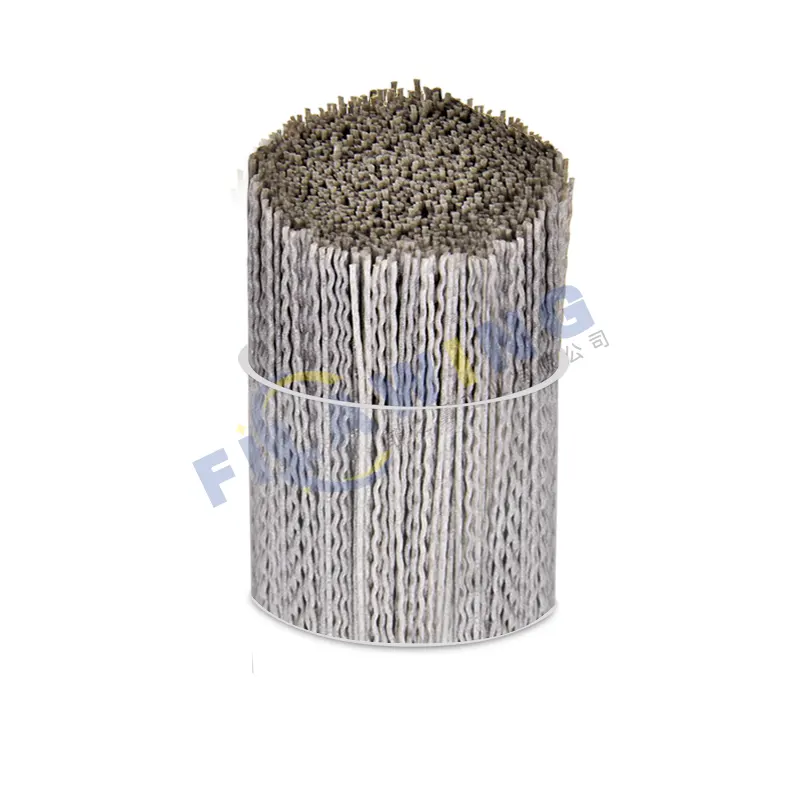Why Choose Aluminum Oxide Abrasive Filaments for High-Speed Deburring?
In the field of precision manufacturing, high-speed deburring processes impose strict requirements on the balance between material properties and processing efficiency. The alumina abrasive wire launched by WINGS, with its unique physical and chemical properties, has become a core consumable in the automated production lines of industries such as aerospace, automotive parts, and 3C electronics. This article analyzes its technical advantages from four dimensions.
Precise matching of hardness and toughness
WINGS alumina abrasive wire is made of 99.6% purity α-Al₂O₃ crystals, which are sintered at 1800℃ to form a microcrystalline structure. This process stabilizes the Mohs hardness of the material at 9, and simultaneously enhances the fracture toughness to 3.2MPa·m¹/² through grain boundary strengthening technology. In the deburring application of automotive transmission housings, this material can withstand continuous impact at a linear speed of 200m/min, and the tool life is 40% longer than that of silicon carbide abrasives.

Self-sharpening property maintains long-term processing accuracy
By controlling the grain size of alumina within the range of 2-5μm, WINGS developed a gradient pore structure. During the processing, the surface abrasive grains are micro-broken under the effect of frictional heat to form new cutting edges. This controllable self-sharpening mechanism enables the abrasive wire to maintain a surface roughness of Ra0.8μm even after continuous use for 800 minutes. In the back grinding process of semiconductor wafers, this feature increases the product yield to 99.97%.
Thermal stability breaks through the bottleneck of high-speed processing
To address the local high temperatures generated by high-speed rotation, WINGS employs an alumina-zirconia composite phase technology to optimize the material's thermal conductivity to 32W/(m·K). When deburring aero-engine blades, even when the linear speed of the grinding wheel reaches 120m/s, the temperature in the abrasive wire working area is still controlled within 200℃, effectively avoiding thermal damage to the titanium alloy substrate. Measured data shows that the strength attenuation rate of this material at 300℃ is less than 8%.
The environmental protection features are in line with the demands of industrial upgrading
The production process of WINGS alumina abrasive wire adopts a closed-loop water circulation system, with a dust emission concentration of less than 5mg/m³. Its waste can recover 98% of the alumina content through acid washing process, meeting the requirements of the EU RoHS and REACH regulations. In the processing of motor housings for new energy vehicles, this material helps customers pass the ISO14001 environmental management system certification, reducing the annual cost of hazardous waste treatment by 120,000 yuan for a single production line.
At present, WINGS has built an intelligent production line for 500 tons of alumina abrasive wire annually, equipped with over 20 testing devices such as laser particle size analyzers and X-ray diffractometers. By establishing a mathematical model of the cutting force of abrasive wires, the company can provide customers with a full-process solution ranging from process parameter optimization to fixture design. This technological integration capability has enabled WINGS to maintain a market share growth rate of over 25% in the high-speed deburring field for three consecutive years.




